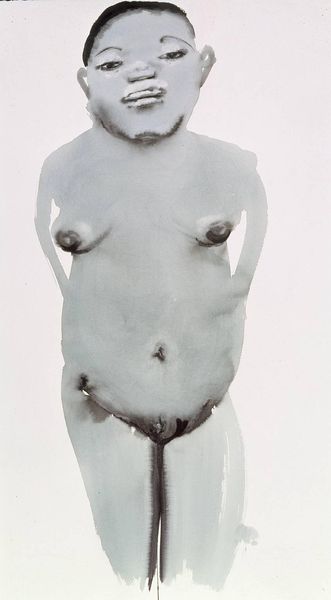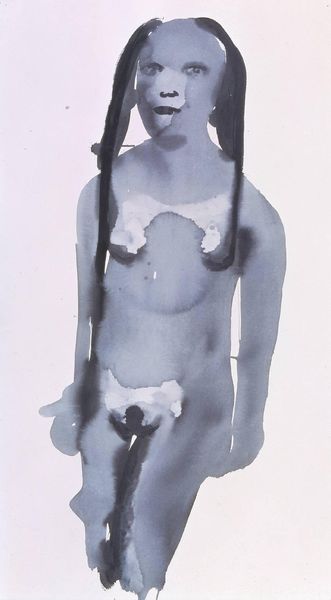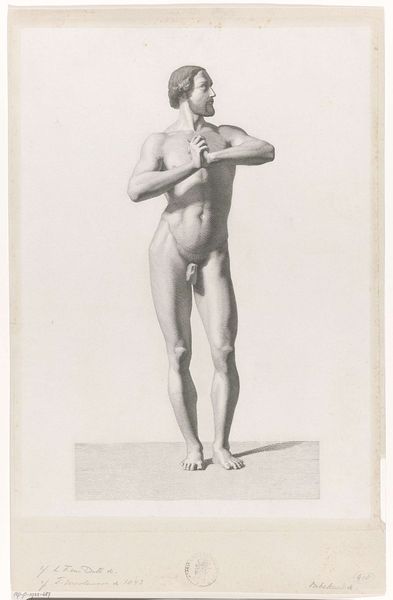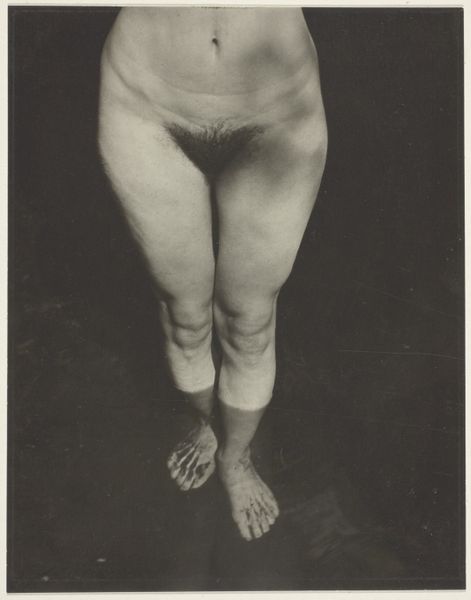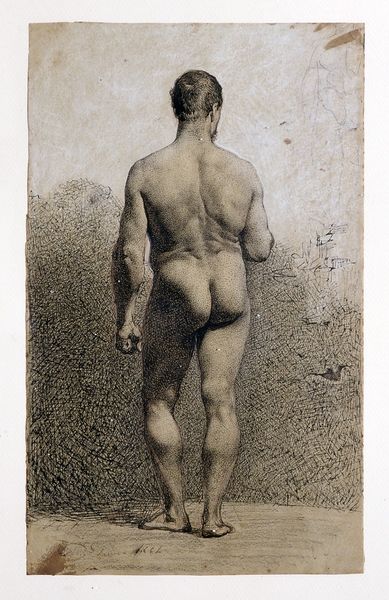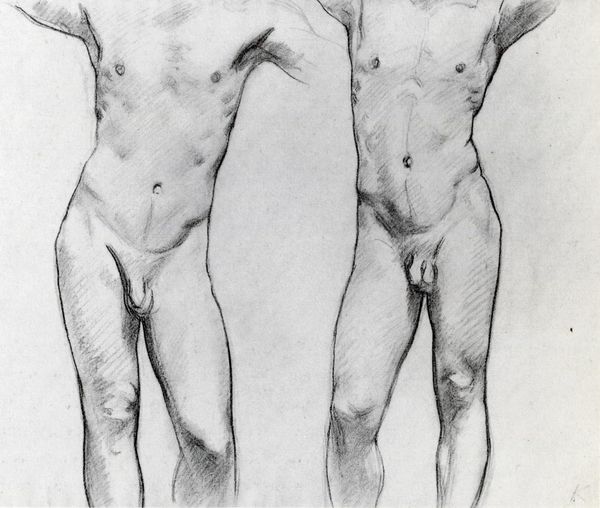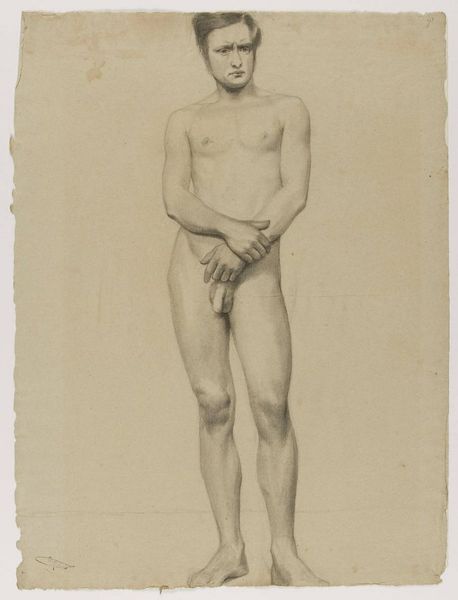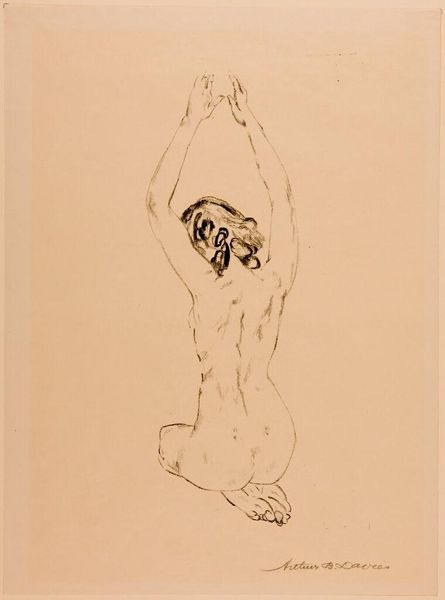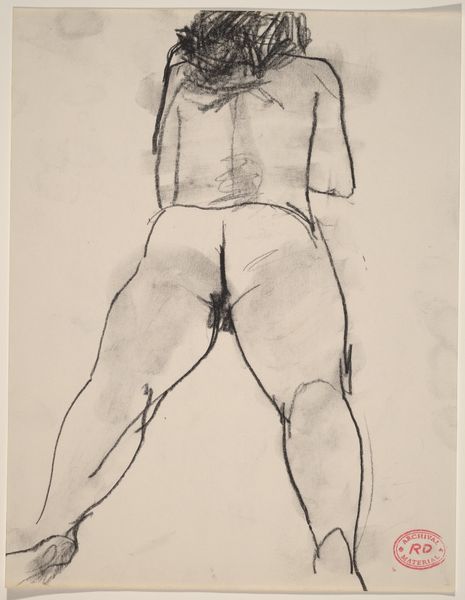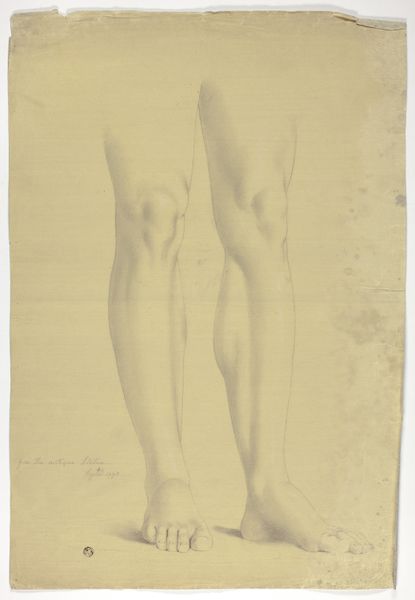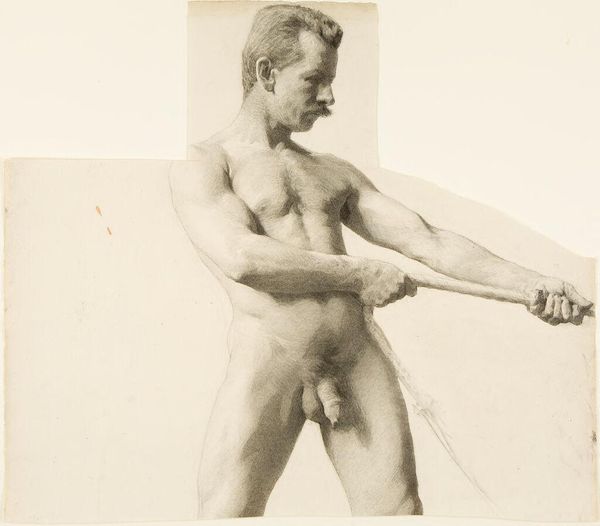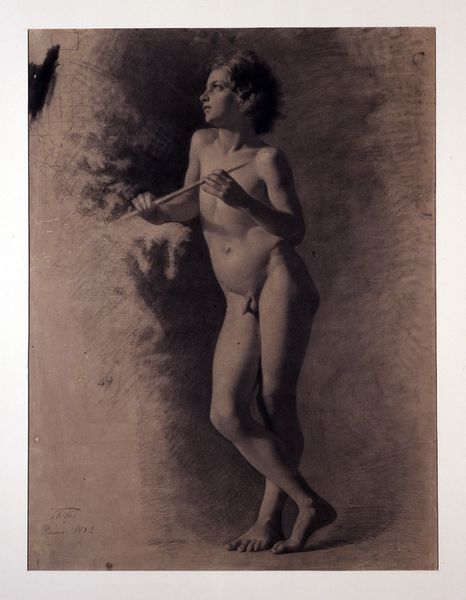
Dimensions: image: 1250 x 700 mm
Copyright: © Marlene Dumas | CC-BY-NC-ND 4.0 DEED, Photo: Tate
Curator: Marlene Dumas' "Magdalena 3" presents a figure rendered in stark monochrome washes. Its scale, approximately 125 x 70 cm, commands a certain presence. Editor: My first impression is vulnerability. The figure's averted gaze, the almost skeletal rendering... it evokes a sense of exposure. Curator: Dumas often engages with themes of sexuality and identity. Considering the title, it's tempting to view this piece through a feminist lens, perhaps interrogating the traditional depictions of Mary Magdalene. Editor: Exactly. The grayscale palette strips away any romanticization. It refuses to let the viewer objectify the figure, demanding we confront the historical baggage associated with her. This piece pushes back against the male gaze. Curator: The loose, fluid brushwork feels deliberate, almost performative. It highlights the act of painting, reminding us of the artist's hand and the choices made in constructing this image. It becomes about the imagery's politics. Editor: Ultimately, "Magdalena 3" becomes a powerful statement on the intersection of religion, sexuality, and the female body, and how representations either liberate or imprison. Curator: An important reminder of art's role in engaging with contested narratives. Editor: Absolutely. It challenges us to re-evaluate our inherited perspectives.
Comments
Join the conversation
Join millions of artists and users on Artera today and experience the ultimate creative platform.
tate 10 months ago
⋮
The Magdalena portraits relate to a series of paintings that Dumas exhibited in Venice in 1995. In these earlier works, the artist combined images of the model Naomi Campbell taken from fashion photographs, with Flemish depictions of the repentant Mary Magdalen, her naked body concealed beneath long hair. The fusion of such strongly contrasting imagery is a significant aspect of Dumas' working process. 'I use religious subjects as I use fairy-tale figures, in order to give my audience an easy starting point, a popular reference that relates to all times and that is familiar to most people', Dumas has explained. Gallery label, August 2004
